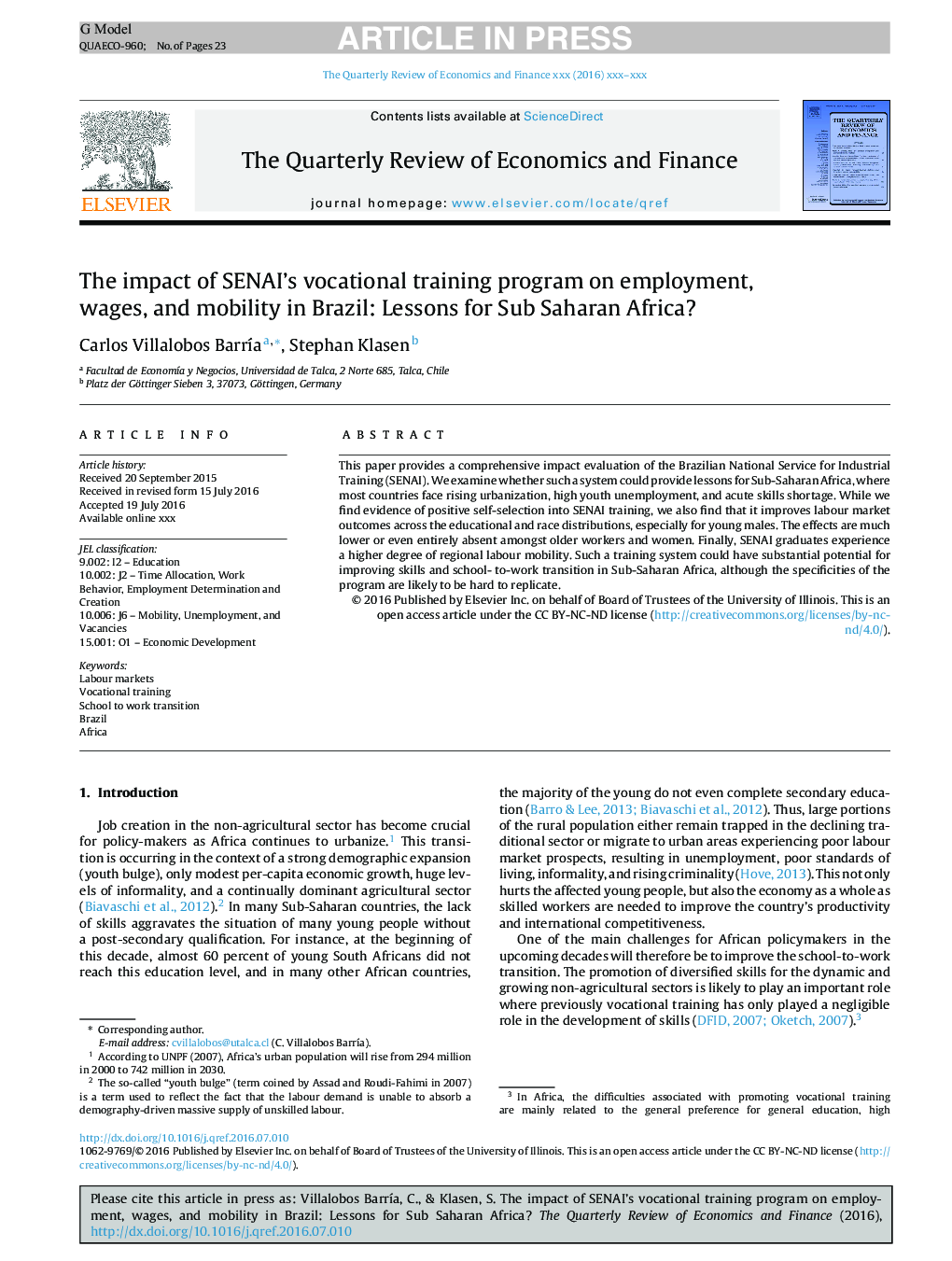| Article ID | Journal | Published Year | Pages | File Type |
|---|---|---|---|---|
| 5103617 | The Quarterly Review of Economics and Finance | 2016 | 23 Pages |
Abstract
This paper provides a comprehensive impact evaluation of the Brazilian National Service for Industrial Training (SENAI). We examine whether such a system could provide lessons for Sub-Saharan Africa, where most countries face rising urbanization, high youth unemployment, and acute skills shortage. While we find evidence of positive self-selection into SENAI training, we also find that it improves labour market outcomes across the educational and race distributions, especially for young males. The effects are much lower or even entirely absent amongst older workers and women. Finally, SENAI graduates experience a higher degree of regional labour mobility. Such a training system could have substantial potential for improving skills and school- to-work transition in Sub-Saharan Africa, although the specificities of the program are likely to be hard to replicate.
Related Topics
Social Sciences and Humanities
Economics, Econometrics and Finance
Economics and Econometrics
Authors
Carlos Villalobos BarrÃa, Stephan Klasen,
